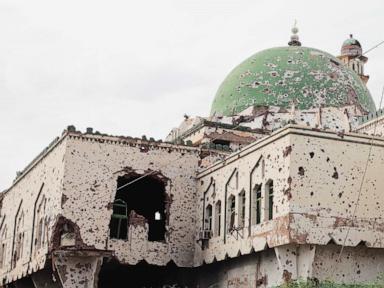Displaced residents of Khartoum, Sudan, are returning to a city marred by destruction and despair, eager to rebuild their lives. Among them is Afaf al-Tayeb, who returned to her home in the Al-Qawz district in June after being displaced multiple times due to the ongoing conflict. The Sudanese army recently announced that it has retaken control of the capital from the Rapid Support Forces (RSF), allowing some residents to feel secure enough to return.
Al-Tayeb, along with her son Mohamed al-Khedr, found only a charred structure where their home once stood. The family had been displaced at least four times since the civil war erupted over two years ago. “The loss of my home left me in tears,” she told The Associated Press. Memories of her parents and late husband, captured in photographs now lost to the flames of the March fire, haunt her as she grapples with the devastation.
A Grim Return to Khartoum
According to the International Organization for Migration, approximately 1.2 million people have returned to Sudan between December 2024 and May 2025. The conflict has forced over 12 million people from their homes since its escalation in April 2023, with 3.2 million seeking refuge in neighboring countries. The situation has led to a humanitarian crisis, with more than 40,000 fatalities reported and widespread famine and disease outbreaks affecting the population.
While the army claims to have regained control of Khartoum, including essential landmarks such as the airport, life for returning residents is fraught with challenges. Mohanad Elbalal, cofounder of the Khartoum Aid Kitchen, stated that neighborhoods lie in ruin, lacking electricity and access to basic services. “In some areas, there’s been a complete dismantling of the infrastructure,” he noted, highlighting the destruction of electric substations and water facilities.
Altyeb Saad, spokesperson for the Khartoum province government, reported that 77 power transfer stations have been looted and destroyed, which has exacerbated the plight of returning families. Saad emphasized that the government is making strides toward reconstruction, focusing on clearing debris and restoring basic services such as electricity and water.
Efforts to Rebuild and the Challenges Ahead
The process of rebuilding Khartoum is estimated to cost billions of dollars, as officials work to restore basic infrastructure and services. Despite the formal claims of security, returning residents like Al-Tayeb still face significant barriers, including a lack of clean water and electricity. Al-Tayeb expressed frustration, questioning the purpose of the military’s control if basic services remain unavailable. “Why did they liberate Khartoum if we’re left for months without basic services?” she asked.
Residents are resorting to makeshift solutions in the absence of government assistance. Some community members have come together to rewire electricity, install solar panels, and connect taps to wells, as the state of Khartoum remains dire. Al-Tayeb and her neighbor, Nasser al-Assad, who has experienced five displacements since the conflict began, are among those struggling to secure basic necessities.
Food remains a critical concern. At the height of the conflict, Khartoum Aid Kitchen served around 4,000 people daily, a number that has since halved but still reflects the ongoing need for support. “Most are spending the majority of their income on food, but they’re not getting the nutritional balance they need,” Elbalal explained. The kitchens are essential for many, providing sustenance in a time of great need.
The return of residents does not guarantee safety or stability. Kholood Khair, founding director of Confluence Advisory, warned that ongoing violence could deter international donors from contributing to the reconstruction efforts. She pointed out that the lack of civil order and the rise of organized crime threaten the fragile environment that returnees are attempting to rebuild.
As Al-Tayeb and her family navigate the aftermath of war, they are left with the daunting task of rebuilding both their home and their lives amidst uncertainty. The community’s resilience is evident as they take initiative to clean and restore their neighborhoods, but long-term solutions will be crucial to ensure a sustainable future for Khartoum and its residents.
